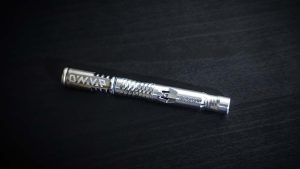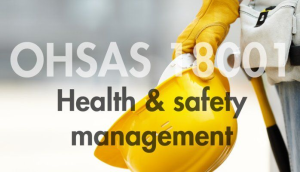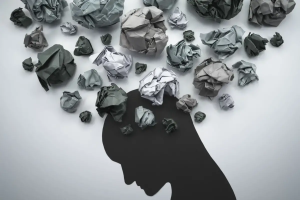Supreme Court officials have taken steps to find the source of the leaked draft opinion that would overturn Roe v. Wade, requiring law clerks to provide cell phone records and sign affidavits, three sources with knowledge of the efforts have told CNN.
According to clerks, some of whom were alarmed by the sudden requests for private cell data and have begun exploring whether to hire outside counsel, some clerks are apparently so alarmed over the moves by the government that they have begun exploring whether to hire outside counsel.
The release of documents by the Supreme Court to investigators is the most striking development yet in an investigation into who might have provided Politico with a draft opinion piece it published on May 2. The probe has intensified the already high tensions at the Supreme Court, where conservatives are poised to roll back a half-century of abortion rights and privacy protections.
Chief Justice John Roberts met with his law clerks in a group shortly after the breach of judicial files was discovered, CNN has learned, but it is not known whether any systematic individual interviews have taken place.
Lawyers warn that intrusiveness
Lawyers outside the court who have become aware of the new inquiries related to cell phone details warn that intrusiveness on clerks’ personal activities may occur, even if clerks disclose no information about their personal or professional lives to the media.
One appellate lawyer who is knowledgeable about government investigations said that “that’s what similarly situated individuals would do in virtually any other government investigation.” It would be hypocritical for the Supreme Court to prevent its own employees from taking advantage of that protection.
Efforts underway to obtain search warrants for cell phone records are still in flux, sources familiar with the situation told ABC News. The exact language of the affidavits and the intended scope of that search — content or time period covered — are not yet clear, the sources said.
The Supreme Court declined to comment, in response to a CNN request on Monday, about the phone searches and affidavits.
The law clerks selected to be Supreme Court law clerks each year are regarded as the elite of the legal profession. (Each justice typically hires four.) They are overwhelmingly graduates of Ivy League law schools and have had prior clerkships with prominent US appellate court judges.
Former clerks of the Supreme Court are often hired by prestigious law firms, top government jobs or professorships. Six of the current nine Supreme Court justices are former clerks.
The escalating scrutiny of law clerks by Chief Justice John Roberts reflects his concerns about the breach in confidentiality and possibly further leaks. It also suggests that the court has been unable to determine who leaked information from Supreme Court deliberations to Politico.
Chief Justice John Roberts ordered an investigation
Chief Justice John Roberts ordered an investigation on May 3, designating the court’s marshal, Gail Curley, to head the probe.
Curley, a lawyer and former Army colonel, oversees the police officers at the Supreme Court. She is best known to the public as the person who chants, “Oyez! Oyez! Oyez!” at the beginning of oral argument sessions. Curley would not normally examine the details of cell phone data or engage in a broad-scale investigation of personnel.
The U.S. Supreme Court is moving into the most intense part of its annual term, grappling with differences between the nine justices over some of the toughest cases before the court. The justices’ clerks are working hard to resolve differences among them before late June deadlines, trying to resolve differences in the toughest cases, all with new pressures and public scrutiny.
The Supreme Court building is surrounded by an 8-foot non-scalable fence and concrete barriers because of protests and security concerns related to the Mississippi abortion case.
The Supreme Court is set to decide a dispute between New York state and local officials over gun regulations. Based on the justices’ remarks during oral arguments in November, the court could also expand Second Amendment protection for gun owners. Additionally, the court may further lower the wall of separation between church and state by permitting certain prayer at public schools and requiring public vouchers for religious institutions.
The draft opinion in the case of Dobbs v. Jackson Women’s Health Organization , written by Justice Samuel Alito, appeared to have a five-justice majority to completely reverse the 1973 Roe v. Wade decision , which made abortion legal nationwide and buttressed other privacy interests not expressly stated in the Constitution. If Roe is reversed, some law professors warn that the Supreme Court’s 2015 decision declaring a constitutional right to same-sex marriage could also be in jeopardy.
The draft opinion by Supreme Court nominee Samuel Alito, expected to be issued soon, has already prompted nationwide protests and state legislative efforts. State lawmakers are considering measures that will either eliminate all options for a woman seeking to terminate a pregnancy or try to safeguard women’s access to abortion where possible.
But it is difficult for anyone outside the building to know whether the Alito draft still commands a majority on a court divided over abortion rights and how quickly to reverse precedent.
Scrutiny of a secretive group
As the justices continue their closed-door meetings, scrutiny of the law clerks is increasing.
Speculation has centered on the clerks as the possible source of the leak, but other insiders had access to Alito’s draft. The opinion, labeled a first draft and dated February 10, would have been circulated to the nine justices, their clerks, and key staffers within each justice’s chambers and select administrative offices.
Traditionally, copies were sent electronically and printed out to be hand-delivered to the chambers by aides to the marshal.
Employees with access to the opinion could have been in contact with other court officials. CNN was unable to verify how many people had access to the document, but former law clerks say that it could have been sent through regular channels to nearly 75 people. Court officials are not asking employees who are part of the permanent staff, beyond the one-year law clerks, for their phone records.
Cell phones hold an enormous amount of information, including texts and images, related to personal interactions and the apps used. It is uncertain whether details linked only to calls would be sought by authorities or whether a broader retrieval would occur.
Drafts of court opinions are circulated electronically on a closed system, separate from the computer system the justices and court employees use to communicate with people outside the court. Yet it is possible for printed copies to leave the building under even innocent circumstances, as work is taken home.
The court officials are not forthcoming with information even in normal times. No progress report related to the leak investigation has been made public, and it is not clear whether any report from the probe will ever be released.








